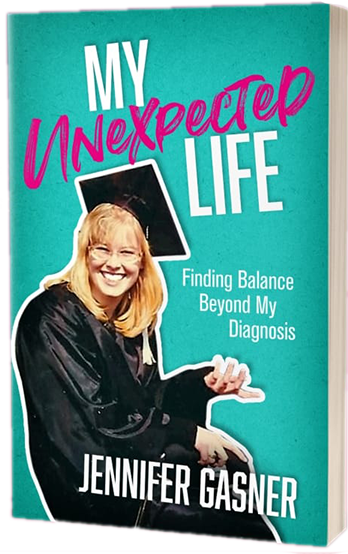I was 22 when I made my first official will. Though I didn’t fully believe I would die soon, something compelled me to make the decision. It’s not like I was rich or had children, but I wanted to be—responsible? Proactive? Realistic? Adult?— just in case Friedreich’s ataxia (FA), had different plans for me. I didn’t think then of donating organs for FA research, or about what I should do with the rights for my future book. That came later.
Because, at the time, I had no dependents or property, it was a fairly simple process with my parents’ attorney. My nephews were the beneficiaries of my life insurance. I signed a few pages in a small but bright office. I don’t remember much, except for a lot of oak furniture.
You Grow. You Adapt.
It wasn’t until 2011, sixteen years later, that I rewrote my will. So many things had changed—the big one being that I owned property now. But I also learned about donating organs for FA research. My simple, easy, will became a living trust and an advanced directive. It came to me as a thick binder and required many more signatures.
Now fifteen years later, I want/need to change it again. Circumstances have changed, like the fact that now I have a published book, My Unexpected Life: Finding Balance Beyond My Diagnosis. Do I need to state who controls the work after my death and who receives the income from sales? Or am I overthinking this? At this point, it’s not a New York Times bestseller or being made into a movie. But what if?
Why is this so important to me—making sure things are decided? It goes beyond responsibility and wanting to make things easier for people who I leave behind. I realize that it’s about safeguarding the potential for my words to reach those who might need them, to challenge preconceptions, and to inspire a deeper understanding of disability. It’s about knowing that even in death, I can contribute to a world where disability is seen not as a tragedy, but as an integral part of the human experience.
And yes, maybe a little bit of it is ego. Is my work groundbreaking or new? In many ways, it’s not. Disabled people have been telling their stories for a long time. But they are often framed as inspiration. I like to think my perspective goes beyond that.
Should I choose someone who truly understands my story and my advocacy for disability rights? Someone who will continue to share my message with the world? These questions swirl in my mind, urging me to think beyond the now and consider the ripples my choices may create in the future.
In the words of the glorious Stella Young, “I am not a snowflake. I am not a sweet, infantilizing symbol of fragility and life. I am a strong, fierce, flawed adult woman. I plan to remain that way, in life and in death.”
For more information about donating organs for FA research please click here.



Recent Comments